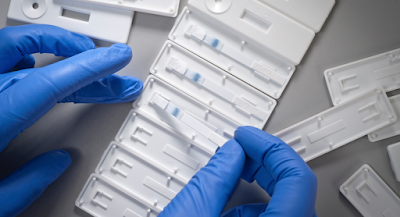The Lateral Flow Assay Kit Tests For Drug Addiction, Pregnancy, Fertility, Cardiac Indicators, Viral Diseases Quickly And Easily
 |
| Lateral Flow Assay |
Several industries, including healthcare, animal health, food and feed testing, environmental testing, and plant disease testing, have embraced Lateral Flow Assay techniques. The cross applications of lateral flow assays include food testing and drug misuse testing in addition to infectious illness testing and pregnancy testing. Most significantly, LFA tests are frequently used due to their simplicity of use, which helps prevent frequent hospital visits.
A target analyte can be detected in a sample using lateral flow assays (LFA), also referred to as lateral flow immunochromatographic tests (matrix). For the qualitative and quantitative identification of particular antigens and antibodies, these tests are frequently employed in hospitals and clinical laboratories. Additionally, Lateral Flow Assay kits are used to quickly screen for drug addiction, pregnancy, fertility, cardiac indicators, viral disorders, and cholesterol testing/lipid profiling. They are also employed in the testing of foods and drinks.
In just 5 to 30 minutes, lateral flow tests can successfully find chemicals of interest that are present in complicated combinations. Given the many advantages it provides, lateral flow technology is quickly becoming the approach of choice for evaluating infectious diseases.Home-based Lateral Flow Assay equipment is important for tracking viral and cardiovascular diseases.
Additionally, because they enable patients to conduct self-tests at home, these devices are effective for detecting pregnancy and stigmatised diseases like HIV. The demand for lateral flow assays is anticipated to expand due to the rising prevalence of these diseases and the growing use of lateral flow assay testing in home care settings.
The paper-based Lateral Flow Assay (LFA) platform is used to find and measure analytes in complicated mixtures. It aids in analysing biological samples of blood, serum, plasma, urine, perspiration, and other fluids. In hospitals and clinical laboratories, it is frequently used for the qualitative and quantitative detection of certain drugs, antibodies, and gene amplification. LFA is also becoming very popular all over the world since it helps to create low-cost, straightforward, quick, and portable detection instruments that are used in biomedicine, agricultural, food, and environmental sciences.



Comments
Post a Comment